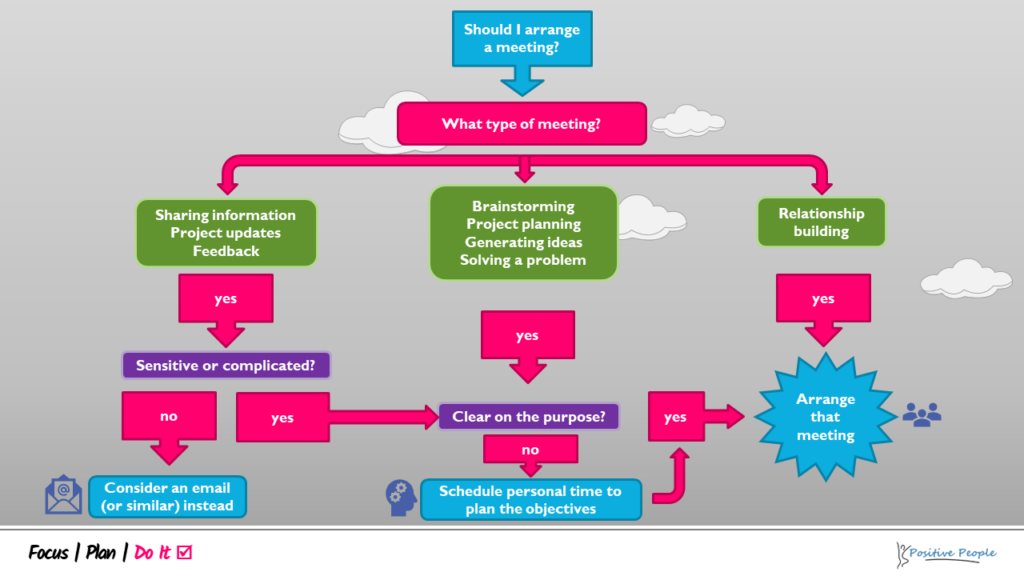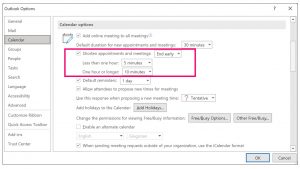Meetings
Or more specifically ‘some meetings’ – not all are a waste of time; they have the potential to be a very productive part of our week.
Poorly run meetings can be demoralising and when we’re in back-to-back meetings, it feels like there’s little time left to handle our work. In fairness, most of us can be victims and culprits of unproductive and unnecessary meetings.
So how do the principles in this programme relate to meetings?
Should this be a meeting?
Download the flowchart to help determine when to arrange a meeting?
Should you attend the meeting?
American businessman Charles Scharf, said “Meetings should have as few people as possible, but all the right people.”
If you’re on the receiving end of an invitation, perhaps the key factor in determining which to attend will be in the meeting’s value. Either the value that you can bring to the meeting or the value it will bring to your work. Asking for a clear agenda before accepting the meeting invitation is good practice – you can ask nicely!
The Focus framework in this programme consists of conversations to regularly have with ourselves or others to help with decision-making. For example, is the meeting relevant to one of my Roles, is it a Project I want to be involved with? If not, you might want to check out the 7 Ways to Say No!
Preparing for the meeting
It’s not that all the decisions should be made before the meeting, but by disseminating the agenda and background information beforehand, informed decisions can effectively be made at the meeting.
Of course, if you’re responsible for the meeting, having collated the meeting points, circulate the agenda in enough time to allow each participant to prepare, keeping in mind they likely have a busy schedule already. Having timings next to each point on the agenda can also be helpful – but only if you adhere to them.
Has anyone ever said, 'I wish I could go to more meetings today'?
Matt Mullenweg Tweet
After the meeting
Circulating key action points shortly after the meeting helps avoid misunderstandings. These shouldn’t be long rambling notes, but simply a record of agreed actions, who owns them and the deadline for completion. Depending on technical solutions you may use, it might even be possible to handle this as the meeting is in progress.
Technical solutions
A great tip is to reduce the allotted time for a meeting. Moving from location to location even in the same building requires time. For physical and virtual meetings to be effective requires the opportunity to refresh and reframe. Google was first of the corporate solutions to provide a feature in the calendar settings called ‘Speedy Meetings’ which automatically reduces a meeting by 5 minutes for every 30 minutes of meeting time (adjustable).
Somewhat lagging behind, Microsoft Outlook caught up and included a similar function. Check out Outlook options > Calendar (See image).
For Microsoft-based organisations, OneNote has some great features for managing meeting agendas and minutes (check out the OneNote section). And Microsoft Planner is a great tool to use during meetings or even instead of them.
If your organisation doesn’t use Microsoft 365, either a simple Google Docs format, BoardPro or Trello can fill these functions.
Recommended Reading/Viewing
Here are some great resources to help run effective meetings:



